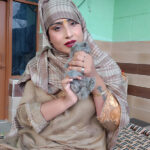Have you ever seen your relatives or neighbours come with a wedding invitation and your family starts discussing what gift or how much money to give the couple?
They also end up discussing whether to attend the wedding or not, and whether to invite them to your future family function, right?
I’ve overheard many such conversations. When I thought about the importance they held, I never found the answers. Every time an elder would just say it’s a way to be a part of the society.
Similarly, when I visited Banswara, Rajasthan in 2019 as part of the Indian School of Development Management (ISDM) curriculum’s district study, I learned about the “wedding gift” of notra.
Notra tradition is a custom among the Bhil tribes, where everyone comes together as one big family. Each contributes towards the wedding festivities.
Twisting the notra tradition of oneness
Whenever there was a wedding, all the members of the community would come together. Everyone would help the family celebrate the special occasion. There used to be a sense of oneness with everyone dependent on each other. The idea was that everyone’s contribution brought ownership of each other’s happiness. Growth was everyone’s responsibility.

The marriages had the traditional system that the teda (the person who invites the community to join in the notra) gives rice by way of invitation – yellow rice for marriages and red rice for the other aspects related to the notra. The sajha (marriage ritual) took place in the daagla (handmade tent of wood), also made of khor (dry grass). The bhoj (feast) was prepared by the whole community with each family bringing their traditional cooking vessels and ingredients to prepare the feast.
But over time, modernity and markets have influenced the traditional practices. Now the daagla is a modern tent and there are chairs and tables rather than dry grass. Services of catering companies are used now instead of the community cooking the wedding feast together. And even the traditional dresses have changed to modern lehengas and sherwanis, which has increased the cost of the celebration to such a level that it has become a measure of a family’s status quo – just like in the cities.
Notra evolves into high-interest community loans
These events become the places to showcase their family wealth which also makes such events increase the competition among the communities to decide who is superior.
When I was interacting with a group of men from the Tamatiya village of the Anandpuri tehsil (township) about notra tradition, one person said, “Marriage costs vary from one family to another. A migrant labourer can do it for Rs 50,000, whereas it can reach Rs 2 lakh for someone else in the same community in the same village.”

This was not the case in the old days, because people gave their time and used shared items. But now the notra is given in the form of money to help pay for the wedding. Everyone in the community is required to chip in. However, the receiver must return twice the amount of money back to the giver. For example, if a family has given Rs 500 to help a family host a marriage function, they will receive Rs 1,000 back.
In other words, the notra has become a very high-interest loan – a loan steeped in tradition which people must follow.
The system has become so obligatory that some are forced to migrate to find work to pay off the notra gift.
High-interest loans for weddings and houses
Over time, the notra tradition has become a way for villagers to get help from the community for big expenditures, like constructing a house. Thankfully, the notra money cannot be used to bail someone out of jail or resolve a dispute.
While it is up to the family to seek notra support or not, the community must give money when requested. They do so, though, on the understanding that eventually they will get double the amount back.
Clearly it is the impoverished members of the community that suffer most from this twisted tradition.
There are places in Banswara, like Kushalgarh, where there still isn’t proper electrification. People don’t have access to drinking water, health facilities and proper education.
Because most Bhil families do not have almirahs or lockers in their house, a better-off family friend or relative keeps the collected money in a secure place until it is needed. This person not only acts as a “banker” but often as wedding planner too, organising the food and ceremony for them.
It is unsurprising that many Bhil families choose to migrate to get away from the notra tradition.

“We want to go to Gujarat because then we don’t have to contribute to the notra, which saves a lot of our money,” one woman told me.
Notra tradition’s vicious loan cycle
For some like Kalu Ram Charpota from Ghatol block, using notra to fund their big dreams can be risky.
Charpota quit a fulltime job due to family issues and returned to his village. Initially he worked in his small agricultural land, a part of which was on mortgage.
When he got a job at a nearby brick factory, he thought of buying a motorcycle. So he sought notra donations. With his existing mortgage it meant he had two loans.
To overcome this burden, he called for another notra. Even this was not enough to bear all the interest he had on both the loans. And, of course, he ended up having even more debt, that it became a burden. So he migrated to Ahmedabad to earn enough to repay his debts and ensure his family’s survival.
Sadly, notra has turned from a community tradition of generosity and cooperation into a money-lending cycle that can make many feel trapped. Rather than a heritage to be admired, it’s become a habit that disempowers those in the community who are unable to beat today’s economy and are not able to run their lives in a market-driven society.
Many Bhils are migrating to escape the notra, as it is pushing many into the vicious cycle of poverty.
The lead image at the top of this page shows Sanjana Kaushik, the author (Photo courtesy Sanjana Kaushik)
Sanjana Kaushik is the Manager – Youth Hub at Village Square. With inputs from Parmesh, Vaagdhara, an NGO working with the Bhils.








